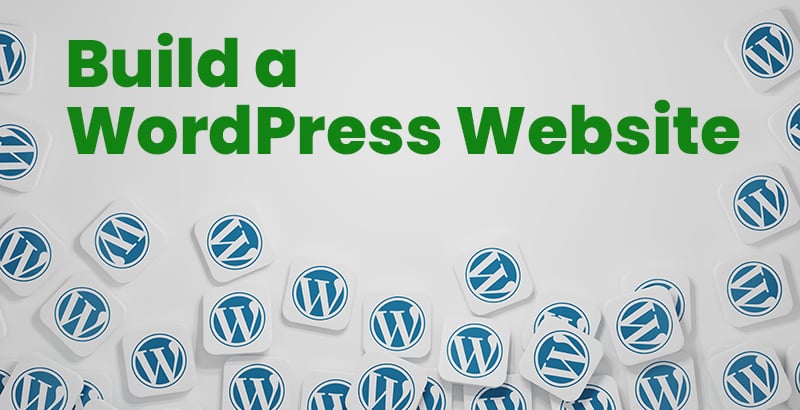- Nov 21, 2017
 0
0- by A2 Marketing Team
WordPress may have started out as a blogging platform, but nowadays it’s a lot more than that. In fact, this Content Management System (CMS) powers almost 30% of the entire web. If you think of WordPress as only for blogging, you’re missing out on a ton of its features.
In our opinion, the best thing about WordPress is how customizable it is. With the right plugins and themes, you can build nearly any type of website you want, including online stores, portfolios, business sites, and more. Once you see what WordPress is really capable of, you’ll probably be a user for life.
For this article, we’re going to talk about four non-blogging niches that are perfect for WordPress. We’ll tell you why the platform is a solid fit for each type of site, and show you some outstanding examples. Let’s take it from the top!
1. Online Stores

WordPress has many strong points, but it’s not built for e-commerce out of the box. However, that doesn’t mean the platform can’t work for online stores. In fact, by using the right plugin, such as WooCommerce, you can quickly start selling digital and physical products over the web.
Let’s talk about why you should consider using WordPress over a dedicated e-commerce platform:
- Ease of use. WordPress is renown for its ease of use, and its top e-commerce plugins can be picked up quickly as well.
- It’s often cheaper than using a dedicated e-commerce platform. You can set up WordPress on any web host you want, and you’ll often find plans that start at less than $5 per month.
- It’s a secure platform. WordPress is always under active development, and you can use plenty of tools to improve your store’s security even further.
Some people might think that e-commerce plugins are only a good fit for small sites. However, a lot of popular online services rely on them to make sales. For example, OptinMonster provides lead generation services to over 300,000 websites, and uses Easy Digital Downloads to power its subscriptions:

This example highlights the fact that WordPress isn’t just a blogging platform. With the right customizations, you can handle any type of online sales you want, and scale your business as much as possible.
2. Business Websites

Every business needs a website. It provides you with an excellent way to reach new customers, build trust with existing ones, and even keep people updated about what’s going on in the industry. Plus, it’s an important tool when it comes to Customer Relationship Management (CRM).
What’s more, WordPress packs a lot of features that can help you create modern business websites. For example:
- WordPress websites are easy to maintain. The way the platform is built makes it easy to handle complex tasks in minutes. For example, you can schedule backups and content from your dashboard.
- It’s easy to find WordPress professionals. WordPress is the most popular CMS in the world. That means it’s easy to find professional help if you run into a problem.
- Search Engine Optimization (SEO). WordPress makes it easy to stay on top of SEO tasks, thanks to plugins such as Yoast SEO. It simplifies the process of attracting brand-new visitors to your site, which can lead to more business.
One excellent example of a business that uses WordPress is The Walt Disney Company:

This is a straightforward website, which focuses mostly on news, information about the company, and career opportunities. However, the fact such a famous company uses WordPress effectively says a lot about the platform’s adaptability and potential.
3. Social Networks

When people think about social networks, they don’t often think about WordPress. To be fair, the platform doesn’t power any social media juggernauts like Facebook or Instagram. However, it can be the perfect solution for modest online communities, thanks to plugins such as BuddyPress.
You may not know this, but there are several services that enable you to create custom social networks. With that in mind, let’s talk about why WordPress is a worthy option:
- It’s much cheaper than specialized social networking software. This type of software is very niche, so it comes at a premium (unlike WordPress, which can be set up for a few dollars in hosting).
- You’re using open-source software. With WordPress, you can customize any aspect of your social network. Specialized software, on the other hand, tends to be a black box you can’t tamper with.
As we mentioned earlier, WordPress makes an excellent fit for small online communities (think a few hundred users). Take Little Sketchers, for example:

This social network was built using BuddyPress, and it looks fantastic. With plugins like this one, you can enable users to create profiles, publish updates, and more, which is all you need for a basic social network.
4. Portfolio Websites

So far, we’ve talked about online stores, business sites, and social networks. Now, let’s focus on something a little less complicated – portfolios. This type of site might not be as technically advanced as an online store, but a professional-looking portfolio is crucial if you’re a freelancer or simply exploring career options.
Let’s go over a few reasons why it makes sense to power your portfolio using WordPress:
- It enables you to create any type of gallery you want. There are dozens of gallery plugins that offer just about any style you’re looking for, to display your work in all its glory.
- You can add contact forms to your website. Just as with galleries, you can have your pick of contact form plugins. This feature is useful for engaging prospective clients.
- It supports client testimonials. This is an essential element to build trust with your clients, and there are several tools that make adding them simple.
Portfolio sites can be very subjective. However, we’re a fan of designs that mix style with outstanding functionality, such as DaInk:

This gorgeous portfolio site isn’t all style. It has a very clear navigational scheme, and it includes all the information clients need, including past projects, contact forms, and more. These are all things you can do easily with WordPress.
Conclusion
If you’re not sure which platform to use for your next project, you should consider WordPress. It’s easy to pick up, versatile and customizable, and can do a lot more than just power simple blogs. All you have to do is find the right plugins and theme for the job you have in mind, and you’ll be able to design nearly any kind of website.
For example, these four non-blogging niches do a great job of showcasing how versatile WordPress can be, and they’re just the tip of the iceberg:
- Online stores: WordPress offers dozens of easy-to-use e-commerce plugins.
- Business websites: With WordPress, you can build scalable and secure business websites.
- Social networks: WordPress is an excellent option for small online communities on a budget.
- Portfolio websites: The platform offers dozens of features that make building online portfolios easier.
Image credit: Pixabay.












